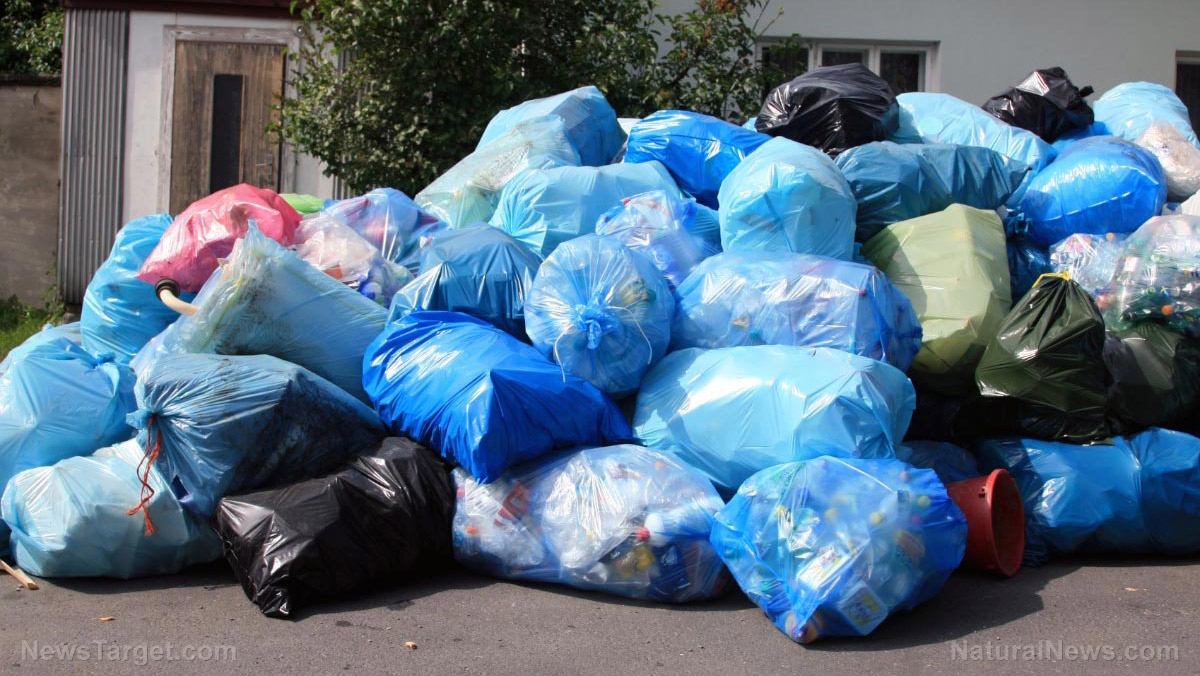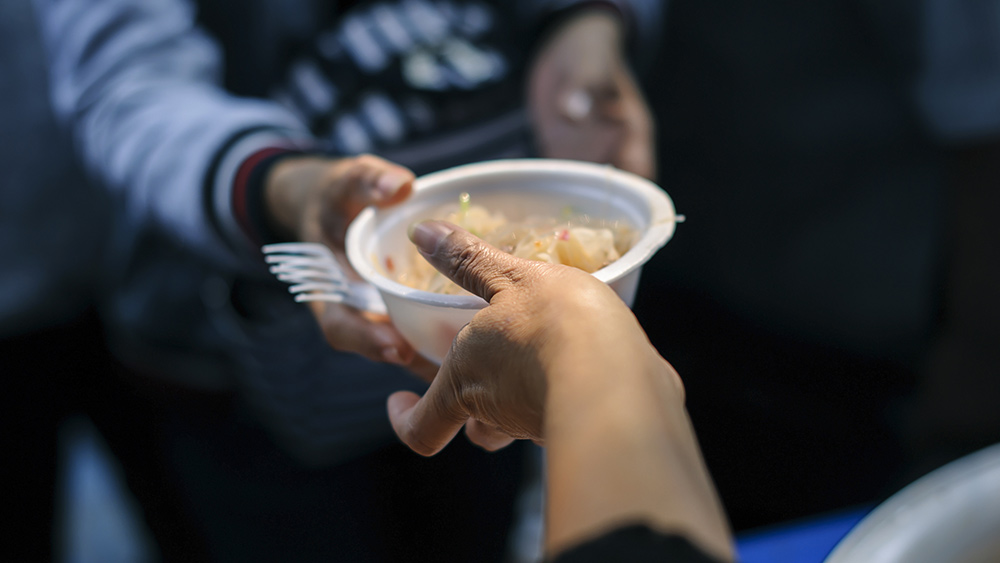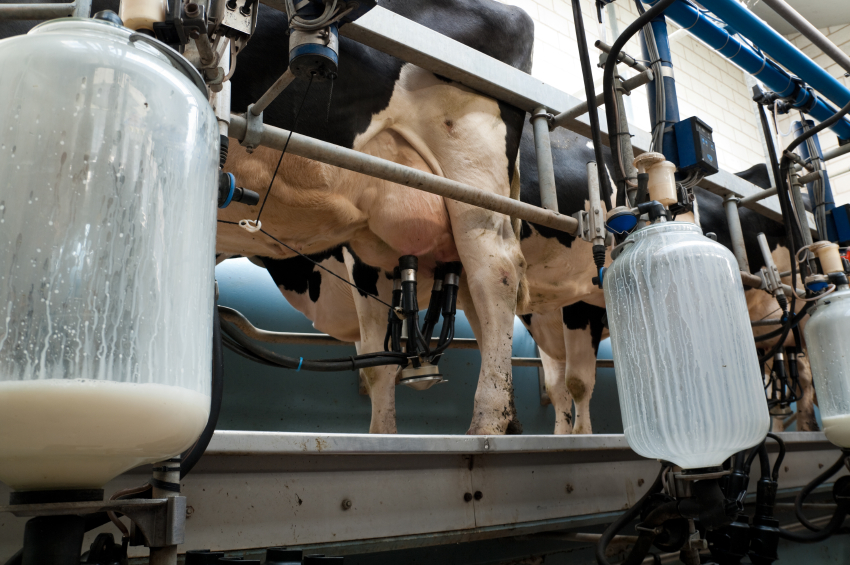Poor Filipinos surviving on repurposed LEFTOVER FOOD from garbage dumps called “PAGPAG”
10/06/2023 / By Ramon Tomey

While most Westerners cringe at the thought of eating food picked up from dumpsters, many poor Filipinos don’t shy away from doing so – and even recook them to make “pagpag.”
The Filipino word “pagpag” literally means to clean off or shake off dirt. But for Filipinos living below the poverty line, the word often means affordable sustenance. According to The COVID Blog, seven in 10 Filipinos cannot afford nutritious food while 42 percent cannot afford to feed themselves adequate daily calories.
An October 2018 article by India Today outlined the process of making pagpag. Groups making this food item hire two to three pagpag collectors, paying them as low as $6 a day. These collectors scour garbage piles and trash cans all over the capital Manila, collecting leftover food. (Related: UTOPIA: Austin residents FIGHT over dumpster food tossed out behind HEB grocery store.)
Oftentimes, chicken from homegrown fast food chain Jollibee and foreign joints like KFC and McDonalds are picked up. In some instances, burgers with a few bites are also included.
The pagpag collectors then remove all the dirt from the meat by washing it twice. Bones and other unwanted elements are removed before the meat is packed in a plastic bag and sold to potential clients. One bag of pagpag costs between 20 ($0.35) and 30 Philippine pesos ($0.53).
India Today shared that one cook in a carinderia (eatery) in the Tondo suburb in the city of Manila would use the bags of pagpag to cook traditional Filipino dishes, such as caldereta (meat stew) or adobo (meat cooked in vinegar and soy sauce). The leftover chicken from fast food restaurants would be used as the main ingredient.
“Pagpag can either be eaten immediately or later,” the outlet said, describing the repurposed leftovers as the “daily staple food” of some poor communities. “Everyone who is consuming this food knows where it’s from, and they’re not afraid to even feed it to a one-year-old baby. A pagpag vendor [even] claims that no one has ever died from eating [it].”
Pagpag exposes Filipinos to several health risks
“The dumps from where [pagpag] is picked up are often filled with rodents. Health risks include ingestion of poisons, toxins and food-borne illnesses,” India Today noted. The outlet also cited the Philippine National Anti-Poverty Commission‘s perennial warning against eating pagpag due to the risk of malnutrition and contracting diseases such as hepatitis A, typhoid fever, diarrhea and cholera.
But for poor Filipinos living hand-to-mouth, they have no other choice – and pagpag is better than eating nothing at all.
“With the kind of life we live, this helps a lot,” one slum resident told Reuters. “When you buy a bag [of pagpag] worth a few pesos, you can already feed one whole family.”
But for The COVID Blog, the pagpag phenomenon seen in the Philippines is something that will soon come to the West. The site owner also pointed out that thanks to pagpag, Filipinos won’t have a difficult time accepting entomophagy – the consumption of insects as food.
“We know the powers that be … are already forcing people to eat bugs or starve in many parts of the world. Their propaganda – ‘high-protein’ and ‘good for the environment’ – is disseminated to convince Westerners to eat insects,” The COVID Blog noted.
“The latest bug food is bread made out of crickets in Finland. Then there’s all the Bill Gates frankenfoods like lab-grown meat. Now, they are making ice cream and other foods out of plastic waste bottles.”
The site owner concluded: “Pagpag is here to stay in the Philippines … at least, until the bug food mandates are implemented.”
Head over to Frankenfood.news for more similar stories.
Watch this video about lab-grown fish fillet, one of the many “Frankenfoods” being pushed by the globalist World Economic Forum.
This video is from the Vigilent Citizen channel on Brighteon.com.
More related stories:
Greek citizens dumpster dive for food… do you have a Food Rising Grow Box yet?
Portland police called to guard dumpsters full of food after it was discarded by large grocer.
Sources include:
Submit a correction >>
Tagged Under:
clean food watch, Collapse, dangerous, debt collapse, economic riot, edible insects, entomophagy, food freedom, food rationing, food safety, food scarcity, food supply, frankenfood, hunger, insanity, pagpag, philippines, poverty, repurposed leftovers, starvation
This article may contain statements that reflect the opinion of the author
RECENT NEWS & ARTICLES
COPYRIGHT © 2017 STARVATION NEWS



















